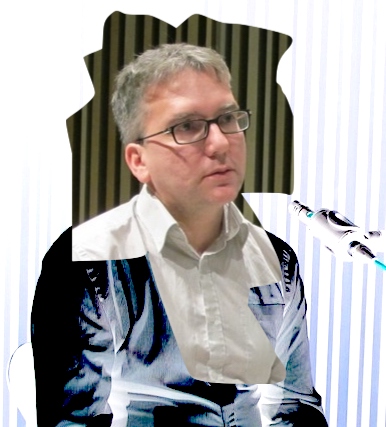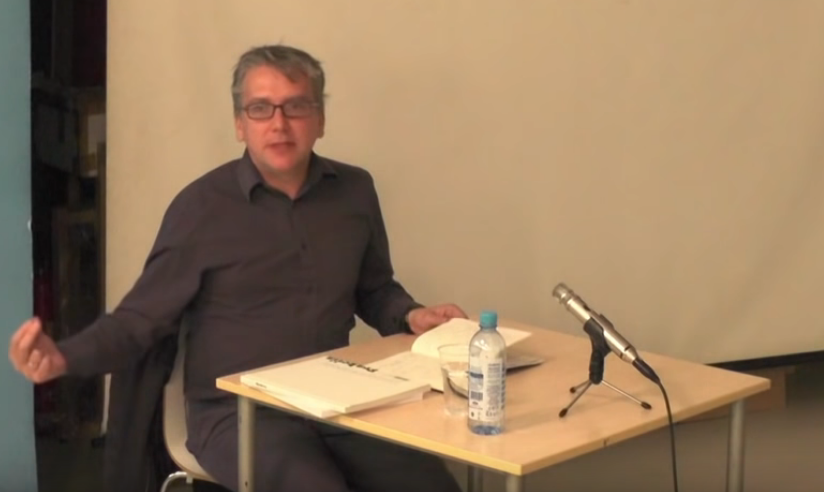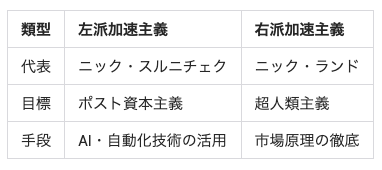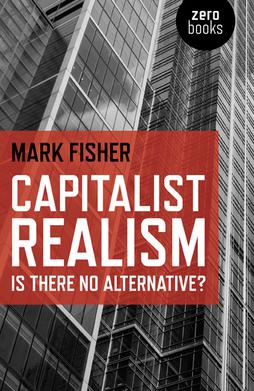
マーク・フィッシャー
Mark Fisher, 1968-2017

☆
マーク・フィッシャー(1968年7月11日 -
2017年1月13日)は、ブログでの別名k-punkとしても知られ、ロンドン大学ゴールドスミスカレッジの視覚文化学科に拠点を置く、英国の作家、音
楽評論家、政治・文化理論家、哲学者、教師であった。彼は当初、2000年代初頭にk-punkとしてブログを執筆し、高い評価を得た。急進的な政治、音
楽、大衆文化に関する執筆で知られていた。
フィッシャーは、『Capitalist Realism: Is There No
Alternative?』(2009年)などの予想外の成功を収めた書籍を含む数冊の著書を出版し、『The Wire』、『Fact』、『New
Statesman』、『Sight & Sound』などの出版物にも寄稿した。また、ゼロ・ブックス(Zero
Books)の共同創設者であり、後にリピーター・ブックス(Repeater
Books)の共同創設者でもあった。長年にわたり断続的にうつ病と闘った後、フィッシャーは2017年1月に自殺した。『The Weird and
the Eerie』(2017年)の出版直前のことだった。
| Mark Fisher (11 July
1968 – 13 January 2017), also known under his blogging alias k-punk,
was an English writer, music critic, political and cultural theorist,
philosopher, and teacher based in the Department of Visual Cultures at
Goldsmiths, University of London. He initially achieved acclaim for his
blogging as k-punk in the early 2000s, and was known for his writing on
radical politics, music, and popular culture. Fisher published several books, including the unexpected success Capitalist Realism: Is There No Alternative? (2009), and contributed to publications such as The Wire, Fact, New Statesman and Sight & Sound. He was also the co-founder of Zero Books, and later Repeater Books. After years intermittently struggling with depression, Fisher died by suicide in January 2017, shortly before the publication of The Weird and the Eerie (2017). |
マーク・フィッシャー(1968年7月11日 -
2017年1月13日)は、ブログでの別名k-punkとしても知られ、ロンドン大学ゴールドスミスカレッジの視覚文化学科に拠点を置く、英国の作家、音
楽評論家、政治・文化理論家、哲学者、教師であった。彼は当初、2000年代初頭にk-punkとしてブログを執筆し、高い評価を得た。急進的な政治、音
楽、大衆文化に関する執筆で知られていた。 フィッシャーは、『Capitalist Realism: Is There No Alternative?』(2009年)などの予想外の成功を収めた書籍を含む数冊の著書を出版し、『The Wire』、『Fact』、『New Statesman』、『Sight & Sound』などの出版物にも寄稿した。また、ゼロ・ブックス(Zero Books)の共同創設者であり、後にリピーター・ブックス(Repeater Books)の共同創設者でもあった。長年にわたり断続的にうつ病と闘った後、フィッシャーは2017年1月に自殺した。『The Weird and the Eerie』(2017年)の出版直前のことだった。 |
| Early life and education Fisher was born in Leicester, England, and raised in Loughborough to working-class, conservative parents; his father was an engineering technician and his mother a cleaner. He attended a local comprehensive school. Fisher was formatively influenced in his youth by the post-punk music press of the late 1970s, particularly papers such as NME which crossed music with politics, film, and fiction.[1] He was also influenced by the relationship between working class culture and football, being present at the Hillsborough disaster.[2] Fisher earned a Bachelor of Arts degree in English and Philosophy at Hull University (1989), and completed a PhD at the University of Warwick in 1999 titled Flatline Constructs: Gothic Materialism and Cybernetic Theory-Fiction.[3] During this time, Fisher was a founding member of the interdisciplinary collective known as the Cybernetic Culture Research Unit, which were associated with accelerationist political thought and the work of philosophers Sadie Plant and Nick Land.[1][4] There, he befriended and influenced producer Kode9, who would later found the Hyperdub record label.[5] In the early 1990s, he also made music as part of the breakbeat hardcore group D-Generation, releasing the EPs Entropy in the UK and Concrete Island, and later Isle Of The Dead as The Lower Depths.[5][6][7] In the 1990s Mark wrote "White Magic" for CritCrim.org.[8] After teaching philosophy at a further education college,[9] Fisher began his blog on cultural theory, k-punk, in 2003.[10] Music critic Simon Reynolds described it as "a one-man magazine superior to most magazines in Britain"[1] and as the central hub of a "constellation of blogs" in which popular culture, music, film, politics, and critical theory were discussed in tandem by journalists, academics, and colleagues.[11] Vice magazine later described his writing on k-punk as "lucid and revelatory, taking literature, music and cinema we're familiar with and effortlessly disclosing its inner secrets".[12] Fisher used the blog as a more flexible, generative venue for writing, a respite from the frameworks and expectations of academic writing.[13] Fisher also co-founded the message board Dissensus with writer Matt Ingram.[1] |
幼少期と教育 フィッシャーはイングランドのレスターで生まれ、労働者階級の保守的な両親のもと、ラフバラで育った。父親はエンジニアリング技術者、母親は清掃員であっ た。彼は地元の総合学校に通っていた。フィッシャーは、1970年代後半のポストパンク音楽のプレスに、特に音楽と政治、映画、フィクションを融合させた NMEなどの雑誌に、若き日に強く影響を受けた。また、 ヒルズバラの悲劇に居合わせたことで、労働者階級文化とサッカーの関係にも影響を受けた。[2] フィッシャーは、1989年にハル大学で英文学と哲学の学士号を取得し、1999年にウォーリック大学で博士号を取得した。博士論文のタイトルは 『Flatline Constructs: ゴシック唯物論とサイバネティクス理論-フィクション」で博士号を取得した。[3] この間、フィッシャーは加速主義的政治思想や哲学者のセディ・プラントとニック・ランドの作品と関連する学際的集団として知られるサイバネティック・カル チャー・リサーチ・ユニットの創設メンバーであった。[1][4] そこで、後にハイパーダブ・レコードレーベルを設立するプロデューサーのKode9と親交を深め、彼に影響を与えた 。1990年代初頭には、ブレイクビート・ハードコア・グループのD-Generationの一員として音楽活動も行い、イギリスでEP 『Entropy』、コンクリート・アイランドで『Concrete Island』、後に『Isle Of The Dead』をThe Lower Depthsとしてリリースした。 継続教育カレッジで哲学を教えた後、フィッシャーは2003年にカルチュラル・セオリーに関するブログ「k-punk」を始めた。[10] 音楽評論家のサイモン・レイノルズは、これを「英国のほとんどの雑誌よりも優れた一人の雑誌」[1]であり、「ブログの星座」の中心的なハブであり、ポッ プカルチャー、音楽、映画、政治、批判理論がジャーナリスト、学者、同僚によって並行して議論されていると表現した。。 雑誌『Vice』は後に、彼のK-パンクに関する文章を「明晰で洞察力に富み、我々がよく知る文学、音楽、映画を取り上げ、その奥深い秘密を難なく明らか にしている」と評した。[12] フィッシャーはブログを、学術的な文章の枠組みや期待から解放された、より柔軟で創造的な執筆の場として活用した。[13] フィッシャーはまた、作家マット・イングラム(Matt Ingram)とともに、メッセージボード『Dissensus』を共同設立した。[1] |
| Career Subsequently, Fisher was a visiting fellow and a lecturer on Aural and Visual Cultures at Goldsmiths College, a commissioning editor at Zero Books, an editorial board member of Interference: A Journal of Audio Culture and Edinburgh University Press's Speculative Realism series, and an acting deputy editor at The Wire.[14] In 2009, Fisher edited The Resistible Demise of Michael Jackson, a collection of critical essays on the career and death of Michael Jackson, and published Capitalist Realism: Is There No Alternative?, an analysis of the ideological effects of neoliberalism on contemporary culture. Fisher was an early critic of call-out culture and in 2013 published a controversial essay titled "Exiting the Vampire Castle".[15][16] He argued that call-out culture created a space "where solidarity is impossible, but guilt and fear are omnipresent". Fisher also argued that call-out culture reduces every political issue to criticizing the behaviour of individuals, instead of dealing with such political issues through collective action.[17][18] In 2014, Fisher published Ghosts of My Life: Writings on Depression, Hauntology and Lost Futures, a collection of essays on similar themes viewed through the prisms of music, film, and hauntology. He also contributed intermittently to a number of publications, including the music magazines Fact and The Wire.[19] In 2016, Fisher co-edited a critical anthology on the post-punk era with Kodwo Eshun and Gavin Butt titled Post-Punk Then and Now, published by Repeater Books.[20] Capitalist realism Main article: Capitalist Realism: Is There No Alternative? In the late 2000s, Fisher re-purposed the term "capitalist realism" to describe "the widespread sense that not only is capitalism the only viable political and economic system, but also that it is now impossible even to imagine a coherent alternative to it".[21] He expanded on the concept in his 2009 book Capitalist Realism: Is There No Alternative?,[22] arguing that the term best describes the ideological situation since the fall of the Soviet Union, in which the logics of capitalism have come to delineate the limits of political and social life, with significant effects on education, mental illness, pop culture, and methods of resistance. The result is a situation in which it is "easier to imagine an end to the world than an end to capitalism."[22] Fisher writes: Capitalist realism as I understand it ... is more like a pervasive atmosphere, conditioning not only the production of culture but also the regulation of work and education, and acting as a kind of invisible barrier constraining thought and action. As a philosophical concept, capitalist realism is influenced by the Althusserian conception of ideology, as well as the work of Fredric Jameson and Slavoj Žižek.[23] The concept of capitalist realism also likely stems from the concept of Cultural hegemony proposed by Italian theorist Antonio Gramsci; which can generally be described as the notion that the "status quo" is all there is, and that anything else violates common sense itself. Capitalists maintain their power not only through violence and force, but also by creating a pervasive sense that the Capitalist system is all there is. They seek to maintain these conditions by dominating most social and cultural institutions. Fisher proposes that within a capitalist framework there is no space to conceive of alternative forms of social structures, adding that younger generations are not even concerned with recognizing alternatives.[24] He proposes that the 2008 financial crisis compounded this position; rather than catalyzing a desire to seek alternatives for the existing model, the response to the crisis reinforced the notion that modifications must be made within the existing system. Fisher argues that capitalist realism has propagated a "business ontology" which concludes that everything should be run as a business including education and healthcare.[25] Following the publication of Fisher's work, the term has been picked up by other literary critics.[26] |
キャリア その後、フィッシャーはゴールドスミスカレッジで聴覚と視覚文化の客員研究員および講師、ゼロブックスで編集長、 オーディオカルチャー誌『Interference』およびエディンバラ大学出版局の『Speculative Realism』シリーズの編集委員、また『The Wire』誌の代理編集者を務めた。[14] 2009年には、マイケル・ジャクソンのキャリアと死に関する評論集『The Resistible Demise of Michael Jackson』を編集し、新自由主義の現代文化に対するイデオロギー的影響の分析である『Capitalist Realism: Is There No Alternative?』を出版した。 フィッシャーはコールアウト文化の初期の批判者であり、2013年には「Exiting the Vampire Castle」という物議を醸したエッセイを出版した。[15][16] 彼は、コールアウト文化は「連帯は不可能だが、罪悪感と恐怖は至る所にある」空間を作り出したと主張した。フィッシャーはまた、コールアウト文化はあらゆ る政治問題を個人の行動批判に還元し、集団行動を通じてそのような政治問題に対処することを妨げるとも主張した。[17][18] 2014年、フィッシャーは音楽、映画、ホーントロジーのプリズムを通して見た同様のテーマに関するエッセイ集『Ghosts of My Life: Writings on Depression, Hauntology and Lost Futures』を出版した。また、音楽雑誌『Fact』や『The Wire』を含む多数の出版物に断続的に寄稿した。[19] 2016年、フィッシャーはポストパンク時代に関する批評的アンソロジー『Post-Punk Then and Now』をKodwo EshunとGavin Buttと共同編集し、Repeater Booksから出版された。[20] 資本主義的リアリズム 詳細は「資本主義的リアリズム:オルタナティブはないのか?」を参照 2000年代後半、フィッシャーは「資本主義的リアリズム」という用語を「資本主義が唯一の実行可能な政治・経済システムであるというだけでなく、それに 代わる首尾一貫した代替案を想像することすらも不可能であるという広範な感覚」を表現するために再定義した。[21] 彼は2009年の著書『資本主義的リアリズム:オルタナティブはないのか?』でこの概念をさらに発展させ、 2009年の著書『Capitalist Realism: Is There No Alternative?』[22]で、この用語がソビエト連邦崩壊後のイデオロギー状況を最もよく表していると主張し、資本主義の論理が政治や社会生活 の限界を規定するようになり、教育、精神疾患、ポップカルチャー、抵抗の方法に大きな影響を与えていると論じた。その結果、「資本主義の終焉よりも世界の 終焉を想像する方が容易」な状況が生じている。[22] フィッシャーは次のように書いている。 私が理解する資本主義的リアリズムとは、文化の生産だけでなく、労働や教育の規制にも影響を及ぼす、より広範な雰囲気のようなものであり、思考や行動を抑制する一種の目に見えない障壁として作用している。 資本主義的リアリズムという概念は、アルチュセールによるイデオロギーの概念やフレドリック・ジェイムソン、スラヴォイ・ジジェクの研究に影響を受けてい る。[23] 資本主義的リアリズムという概念は、おそらくイタリアの理論家アントニオ・グラムシが提唱した文化ヘゲモニーの概念に由来するものでもある。一般的に「現 状」こそがすべてであり、それ以外はすべて常識そのものを侵害するものであるという考え方として説明することができる。資本主義者は、暴力や力によってだ けではなく、資本主義システムこそがすべてであるという感覚を浸透させることによっても、その権力を維持している。彼らは、ほとんどの社会・文化機関を支 配することで、こうした状況を維持しようとしている。フィッシャーは、資本主義の枠組みの中には、社会構造の代替案を考える余地はないと提案し、さらに若 い世代は代替案を認識することにさえ関心がないと付け加えている。[24] 彼は、2008年の金融危機がこの立場をさらに強固にしたと提案している。金融危機への対応は、既存のモデルの代替案を求めるという願望を促進するのでは なく、むしろ既存のシステム内で修正を加えるべきだという考えを強化した。フィッシャーは、資本主義リアリズムが「ビジネス・オントロジー」を広めたと主 張している。この「ビジネス・オントロジー」は、教育や医療も含め、あらゆるものをビジネスとして運営すべきだという結論に達している。 フィッシャーの著作が発表された後、この用語は他の文学評論家にも取り上げられるようになった。 |
| Hauntology Main articles: Hauntology and Hauntology (music)  Fisher lecturing on the topic "The Slow Cancellation of the Future" in 2014 Fisher popularised the use of Jacques Derrida's concept of hauntology to describe a pervasive sense in which contemporary culture is haunted by the "lost futures" of modernity, which failed to occur or were cancelled by postmodernity and neoliberalism.[27] Fisher and others drew attention to the shift into post-Fordist economies in the late 1970s, which he argued has "gradually and systematically deprived artists of the resources necessary to produce the new".[28] In contrast to the nostalgia and ironic pastiche of postmodern culture, Fisher defined hauntological art as exploring these impasses and representing a "refusal to give up on the desire for the future" and a "pining for a future that never arrived".[29][30][page needed] Discussing the political relevance of the concept, Fisher wrote:[27] At a time of political reaction and restoration, when cultural innovation has stalled and even gone backwards, when "power ... operates predictively as much as retrospectively" (Eshun 2003: 289), one function of hauntology is to keep insisting that there are futures beyond postmodernity's terminal time. When the present has given up on the future, we must listen for the relics of the future in the unactivated potentials of the past. Fisher and critic Simon Reynolds adapted Derrida's concept to describe a musical trend in the mid-2000s.[31] Fisher's 2014 book Ghosts of My Life examined these ideas through cultural sources, such as the music of Burial, Joy Division, and the Ghost Box label, TV series such as Sapphire & Steel, the films of Stanley Kubrick and Christopher Nolan, and the novels of David Peace and John le Carré. |
ハントロジー(憑霊学/憑霊主義) 詳細は「ハウントロジー」および「ハントロジー (音楽)」を参照  2014年、フィッシャーは「未来の遅いキャンセル」というテーマで講義を行った フィッシャーは、ジャック・デリダの「ハントロジー」の概念を広め、現代文化がポストモダニティや新自由主義によって実現されなかったりキャンセルされた りした近代の「失われた未来」に取り憑かれているという広範な感覚を説明した。[27] フィッシャーや他の人々は、1970年代後半のポスト・フォーディズム経済への移行に注目し、彼は「アーティストが 新しいものを生み出すために必要な資源をアーティストから徐々に、そして組織的に奪っている」と主張した。[28] ポストモダン文化のノスタルジーや皮肉なパロディとは対照的に、フィッシャーは「ハントロジー芸術」を、こうした袋小路を探究し、「未来への希望を諦めな いこと」と「決して訪れることのなかった未来への憧れ」を表現するものとして定義した。[29][30][要ページ番号] この概念の政治的関連性について、フィッシャーは次のように書いている。 政治的な反動と復古主義の時代、文化的な革新が停滞し、後退さえしている時代、すなわち「権力が予測的に、また回顧的に作用する」時代(Eshun 2003: 289)において、ポストモダンの終焉の時代を超えた未来が存在することを主張し続けることが、ハントロジーのひとつの機能である。未来をあきらめた現在 において、私たちは過去の潜在的な可能性の中に未来の残滓を聞き取らなければならない。 フィッシャーと評論家のサイモン・レイノルズは、2000年代半ばの音楽のトレンドを説明するのに、デリダの概念を援用した。[31] フィッシャーの2014年の著書『Ghosts of My Life』では、Burial、Joy Division、Ghost Boxレーベルの音楽、テレビシリーズ『Sapphire & Steel』、スタンリー・キューブリックやクリストファー・ノーランの映画、デイヴィッド・ピースやジョン・ル・カレの小説といった文化的なソースを通 して、これらのアイデアを検証している。 |
| The Weird and the Eerie Fisher's posthumous book The Weird and the Eerie[32] explores the titular concepts of "the weird" and "the eerie" through various works of art, defining the concepts as radical narrative modes or moments of "transcendental shock" which work to de-centre the human subject[33] and de-naturalise social reality, exposing the arbitrary forces that shape it.[34] Summarizing Fisher's characterizations, Yohann Koshy stated that "weirdness abounds at the edge between worlds; eeriness radiates from the ruins of lost ones".[12] The book includes discussion of science-fiction and horror sources such as the writing of H. P. Lovecraft, Joan Lindsay's 1967 Picnic at Hanging Rock, and Philip K. Dick, films such as David Lynch's Inland Empire (2006) and Jonathan Glazer's Under the Skin (2013), and the music of UK post-punk band The Fall and ambient musician Brian Eno.[35] |
奇妙なものと不気味なもの フィッシャーの死後に出版された著書『奇妙なものと不気味なもの』[32]では、さまざまな芸術作品を通して「奇妙な」と「不気味な」というタイトルにあ る概念を掘り下げ、その概念を、人間を主体から外し[33]、社会の現実を非現実的なものとする、急進的な物語の様式や「超越的な衝撃」の瞬間と定義して いる。それを形作る恣意的な力を露わにする。[34] フィッシャーの性格づけを要約して、ヨハン・コシーは「奇妙さは世界の境界に溢れ、不気味さは失われたものの廃墟から放たれる」と述べた。[12] 本書には、H. P. ラヴクラフトの著作や ジョアン・リンゼイの1967年の小説『ピクニック・アット・ハンギング・ロック』、フィリップ・K・ディック、デヴィッド・リンチの映画『インランド・ エンパイア』(2006年)やジョナサン・グレイザーの『アンダーザスキン』(2013年)、英国のポストパンクバンド、ザ・フォールやアンビエント ミュージシャンのブライアン・イーノの音楽などが挙げられている。[35] |
| Acid Communism At the time of his death, Fisher was said to be planning a new book titled Acid Communism,[1] excerpts of which were published as part of a Mark Fisher anthology, k-punk: The Collected and Unpublished Writings of Mark Fisher (2004–2016), by Repeater Books in November 2018.[36][37] Acid Communism would have attempted to reclaim elements of the 1960s counterculture and psychedelia in the interest of imagining new political possibilities for the Left.[1] |
アシッド・コミュニズム フィッシャーは死去時に、アシッド・コミュニズムというタイトルの新刊を計画していたと言われている。その抜粋は、2018年11月にリピーター・ブック スから出版されたマーク・フィッシャーのアンソロジー『k-punk: The Collected and Unpublished Writings of Mark Fisher (2004–201 。2018年11月にリピーター・ブックスから出版されたマーク・フィッシャーのアンソロジー『k-punk: The Collected and Unpublished Writings of Mark Fisher (2004–201 6)』の一部として抜粋が公開された。[36][37] 『Acid Communism』は、1960年代のカウンターカルチャーとサイケデリアの要素を再評価し、左派の新たな政治的可能性を想像しようとする試みであっただろう。[1] |
| On Vanishing Land Following Fisher's death, the Hyperdub record label started a sub label called Flatlines which published an audio-essay by Justin Barton and Fisher in July 2019. Fisher and Barton edited together music from various musicians which was made to accompany the text, and Barton, working in part with suggestions from Fisher, wrote the text for the audio-essay, which "evokes a walk along the Suffolk coastline in 2006, from Felixstowe container port ('a nerve ganglion of capitalism') to the Anglo-Saxon burial ground at Sutton Hoo". Both Barton and Fisher narrate the essay.[38] Adam Harper wrote about the elements of Hauntology in On Vanishing Land, as well as its relation to the environmentalist movement.[39] In a review for The Quietus, Johny Lamb referred to On Vanishing Land as a "shocking revelation of the proximity of dystopia."[40] |
消えゆく土地で フィッシャーの死後、ハイパーダブ・レコード・レーベルはサブレーベルのフラットラインズを立ち上げ、2019年7月にジャスティン・バートンとフィッ シャーによるオーディオ・エッセイを出版した。フィッシャーとバートンは、テキストに合わせた音楽として、さまざまなミュージシャンの楽曲を編集し、バー トンはフィッシャーの提案も一部取り入れながら、このオーディオ・エッセイのテキストを執筆した。このテキストは、「2006年のサフォーク州の海岸沿い を歩く様子を喚起するもので、コンテナ港のフェリックスストウ(「資本主義の神経節」)から、サットン・フーのアングロ・サクソン人墓地まで」を描写して いる。バートンとフィッシャーの両名がエッセイのナレーションを担当している。[38] アダム・ハーパーは『On Vanishing Land』における「Hauntology」の要素と環境保護運動との関連について書いている。[39] 『The Quietus』の書評で、ジョニー・ラムは『On Vanishing Land』を「ディストピアの近さを示す衝撃的な暴露」と評している。[40] |
| Critique of political economy Fisher critiqued economics, claiming that it was a bourgeois "science" that moulds reality after its presuppositions, rather than critically examining reality. As he stated it himself: From the start, "economy" was the object-cause of a bourgeois "science", which hyperstitionally bootstrapped itself into existence, and then bent and melted the matter of this and every other world to fit its presuppositions – the greatest theocratic achievement in a history that was never human, an immense conjuring trick which works all the better because it came shrouded in that damp grey English and Scottish empiricism which claimed to have seen off all gods.[41] |
政治経済批判 フィッシャーは経済学を批判し、経済学は現実を批判的に検証するのではなく、現実を前提条件に従って形作るブルジョワの「科学」であると主張した。彼自身が述べたように、 当初から、「経済」はブルジョワの「科学」の客観的因果であり、それは自己増殖的に存在し、その後、その前提条件に適合するように、この世界とあらゆる世 界の事柄を曲げたり溶かしたりした。それは、神をすべて退治したと主張する、湿った灰色のイギリスとスコットランドの実証主義に包まれていたため、より効 果的に機能する、歴史上最大の神権的達成であり、途方もない奇術であった。[41] |
| Personal life In an article posted to the k-punk blog on 29 September 2004, Fisher wrote about having experienced sexual abuse in his early twenties.[42] Death Fisher died by suicide at his home on King Street, Felixstowe, on 13 January 2017 at the age of 48, shortly before the publication of his latest book The Weird and the Eerie (2017). He had sought psychiatric treatment in the weeks leading up to his death, but his general practitioner had only been able to offer over-the-phone meetings to discuss a referral. Fisher's mental health had deteriorated since May 2016, leading to a suspected overdose in December 2016, when he was admitted to Ipswich Hospital.[43] He discussed his struggles with depression in articles[44] and in his book Ghosts of My Life. According to Simon Reynolds in The Guardian, Fisher argued that "the pandemic of mental anguish that afflicts our time cannot be properly understood, or healed, if viewed as a private problem suffered by damaged individuals."[1] |
私生活 2004年9月29日にk-punkブログに掲載された記事で、フィッシャーは20代前半に性的虐待を経験したと書いている。[42] 死 フィッシャーは2017年1月13日、48歳の若さでフェリックスストウのキング・ストリートにある自宅で自殺した。最新刊『The Weird and the Eerie』(2017年)の出版を間近に控えていた。彼は死の数週間前から精神科の治療を受けていたが、かかりつけ医は紹介状を書くための面談を電話で しか行えなかった。フィッシャーの精神状態は2016年5月以降悪化し、2016年12月には過剰摂取の疑いがあり、イプスウィッチ病院に入院した。彼は 記事[44]や著書『Ghosts of My Life』で、うつ病との闘いを語っている。ガーディアン紙のサイモン・レイノルズによると、フィッシャーは「現代を悩ませている精神的な苦悩の蔓延は、 傷ついた個人が抱える個人的な問題として捉えられた場合、適切に理解されることも、癒されることもない」と主張したという。[1] |
| Legacy Fisher has been posthumously acclaimed as a highly influential thinker and theorist.[45][46] Commenting on Fisher's influence in Tribune, Alex Niven recalled that Fisher's "lucidity, but more than that, his ability to get to the heart of what was wrong with late-capitalist culture and right about the putative alternative...seemed to have cracked some ineffable code".[47] In The Irish Times Rob Doyle wrote that "a more interesting British writer has not appeared in this century",[48] while The Guardian described Fisher's k-punk blog posts as "required reading for a generation".[1] In the Los Angeles Review of Books, Roger Luckhurst called Fisher "one of Britain's most trenchant, clear-sighted, and sparky cultural commentators...it is a catastrophe that we no longer have Mark Fisher".[49] He still has a large influence on contemporary Zer0 Books writers, with him being cited extensively in Guy Mankowski's Albion's Secret History: Snapshots of England's Pop Rebels and Outsiders.[50] After Fisher's suicide, English musician the Caretaker, who had a symbiotic relationship with the writer,[51] released Take Care. It's a Desert Out There... in memory of him, with its proceeds being donated to the mental health charity Mind.[52] Since 2018, "For k-punk" has been a yearly series of tribute events celebrating Fisher's life and works.[53] In 2021, the ICA commissioned a series of films from different artists for the occasion to respond to themes in the volume Postcapitalist Desire (2020), which transcribes Fisher’s final lecture series for his MA contemporary art theory course at Goldsmiths. The films have unifying visuals and captions by Sweatmother who was influenced through Fisher's work to use "early internet aesthetics and 1990s cyberpunk, merged with reworked empty promises of advertisements.”[54] |
レガシー フィッシャーは死後、非常に影響力のある思想家および理論家として高く評価されるようになった。[45][46]トリビューン紙でフィッシャーの影響力に ついてコメントしたアレックス・ニーヴンは、フィッシャーの「明晰さ、そしてそれ以上に、後期資本主義文化の何が問題なのか、その代替案が正しいのかとい う核心に迫る能力は 、言葉では言い表せない暗号を解読したかのようだった」と述べている。[47] 『アイリッシュ・タイムズ』紙のロブ・ドイルは、「今世紀に入ってから、これほど興味深い英国人作家は現れていない」と記している。[48] 一方、『ガーディアン』紙はフィッシャーのK-パンクに関するブログ記事を「ある世代にとって必読の文献」と評している。[1] 『ロサンゼルス・レビュー・オブ・ブックス』誌では、 ロジャー・ラックハーストはフィッシャーを「英国で最も鋭く、明晰で、才気あふれる文化評論家の一人」と呼び、「マーク・フィッシャーを失ったことは、我 々にとっての悲劇である」と述べた。[49] 彼は現代のZer0 Books作家たちに今も大きな影響を与えており、ガイ・マンコウスキーの著書『アルビオンの秘密の歴史: 。フィッシャーの自殺後、彼と共生関係にあったイギリスのミュージシャン、ザ・ケアテイカー(The Caretaker)は、彼を追悼して『テイク・ケア・イズ・ア・デザート・アウトゼア...』をリリースした。収益はメンタルヘルスの慈善団体マインド に寄付された。 2018年より、「For k-punk」はフィッシャーの生涯と作品を称えるトリビュート・イベントの年次シリーズとなっている。[53] 2021年には、フィッシャーがゴールドスミスカレッジの現代美術理論コースの修士課程で最後に担当した講義シリーズを記録した『ポスト資本主義の欲望』 (2020年)のテーマに応えるため、ICAはさまざまなアーティストに一連の映像作品を依頼した。映像作品は統一されたビジュアルと、フィッシャーの作 品に影響を受けて「初期のインターネット美学と1990年代のサイバーパンクを、広告の空約束を再加工したものと融合させた」キャプションで構成されてい る。[54] |
| Bibliography The Resistible Demise of Michael Jackson (editor). Winchester: Zero Books, 2009. ISBN 978-1-84694-348-5 Capitalist Realism: Is There No Alternative? Winchester: Zero Books, 2009. ISBN 978-1-84694-317-1 Ghosts of My Life: Writings on Depression, Hauntology and Lost Futures. Winchester: Zero Books, 2014. ISBN 978-1-78099-226-6 Post-Punk Then and Now (editor, with Gavin Butt and Kodwo Eshun). London: Repeater Books, 2016. ISBN 978-1-910924-26-6 The Weird and the Eerie. London: Repeater Books, 2017. ISBN 978-1-910924-38-9 Flatline Constructs: Gothic Materialism and Cybernetic Theory-Fiction (foreword by exmilitary). New York: Exmilitary Press, 2018. ISBN 978-0-692-06605-8 k-punk: The Collected and Unpublished Writings of Mark Fisher (2004–2016) (edited by Darren Ambrose, foreword by Simon Reynolds). London: Repeater Books, 2018. ISBN 978-1-912248-29-2 Postcapitalist Desire: The Final Lectures (edited and with an introduction by Matt Colquhoun). London: Repeater Books, 2020. ISBN 978-1-913462-48-2 |
参考文献 『マイケル・ジャクソンの悲劇的な死』(編著)。ウィンチェスター:ゼロ・ブックス、2009年。ISBN 978-1-84694-348-5 『資本主義的リアリズム:オルタナティブはないのか?』ウィンチェスター:ゼロ・ブックス、2009年。ISBN 978-1-84694-317-1 『Ghosts of My Life: Writings on Depression, Hauntology and Lost Futures』(『私の人生の亡霊:うつ病、ホーントロジー、失われた未来についての著作』)。ウィンチェスター:Zero Books、2014年。ISBN 978-1-78099-226-6 『Post-Punk Then and Now』(『ポストパンクのこれまでと今』、ギャビン・バットおよびコドゥ・エシュンとの共編著)。ロンドン:Repeater Books、2016年。ISBN 978-1-910924-26-6 『The Weird and the Eerie』ロンドン:Repeater Books、2017年。ISBN 978-1-910924-38-9 『Flatline Constructs: Gothic Materialism and Cybernetic Theory-Fiction』(前書き:exmilitary)ニューヨーク:Exmilitary Press、2018年。ISBN 978-0-692-06605-8 k-punk: マーク・フィッシャーの収集および未発表著作集(2004年~2016年)(編集:ダレン・アンブローズ、序文:サイモン・レイノルズ)。ロンドン:リピーター・ブックス、2018年。ISBN 978-1-912248-29-2 ポスト資本主義的欲望:最終講義(編集および序文:マット・コルクハウン)。ロンドン:リピーター・ブックス、2020年。ISBN 978-1-913462-48-2 |
| https://en.wikipedia.org/wiki/Mark_Fisher |
Accelerationism |
| 加速主義(か
そくしゅぎ、英:
accelerationism)とは、既存のシステム内を不安定化し根本的な社会的変革を生み出すために、現行の資本主義システムの過激な成長、急進的
な技術革新あるいは各種インフラの解体といった、「加速」と称される社会変革プロセスの過激化を要求する左翼に起源を持つ右翼的な革命的反動思想である
[1][2][3][4][5]。加速主義は、相矛盾する左派と右派の派生に分かれたイデオロギーのスペクトルとみなされており、どちらも資本主義とその
構造の上界無き強化、およびテクノロジーの成長が制御不能かつ不可逆的になる技術的特異点(仮説的時点)への到達を支持している[6][7][8]
[9]。 現代の加速主義的哲学の一部は、広範囲にわたる社会変革の可能性を抑制する相反する傾向を克服することを目的として、脱領土化(英語版)の力を特定し、そ れを深め、急進化することを目的としたジル・ドゥルーズとフェリックス・ガタリの脱領土化の理論に依拠している[10]。ジャン・ボードリヤールの「致命 的戦略」や、イギリスの哲学者で後の暗黒啓蒙の論者であるニック・ランドによって発明された理論体系も加速主義に大きな影響を与えている[1]。ニック・ ランドの体系は「加速」のプロセスを構成する社会的、経済的、文化的、リビード的な力を分析し、それを促進することを目的としている[11]。 概要 この用語は元々極左に起源を持ちその中で利用されていたが、本来の加速主義とは明確に区別された形で、ネオファシスト、ネオナチ、白人ナショナリスト、白 人至上主義者といった極右によって使用されるようになり、暴力的意味合いを増した。極右においての「加速」は、白人エスノステートを暴力的に達成する手段 であり、暗殺、殺人、テロ攻撃などによる人種対立の「加速」を意味している[12][13][14][15]。 「加速」は主に産業経済にコミットする政治戦略だが、最近では道徳と人工知能に関する議論でも用いられる。ホイ・ユクとLouis Moreleは、「加速」と「シンギュラリティ仮説」を検討している[16]。 James Brusseauは、人工知能イノベーションによって引き起こされる道徳的ジレンマが、テクノロジーの制限や遅延によってではなく、さらなるイノベーショ ンによって解決されるというイノベーションの倫理としての「加速」について論じている[17]。効果的加速主義 (e/acc) として知られる運動は、「どんな犠牲を払ってでも」技術を進歩させることを主張している[18]。 日本においては、加速主義がマルクス主義の革命理論や、Red Floodの加速主義と混同されてきた。資本主義を深化させることは自己破壊的な傾向を早め、最終的にはその崩壊につながるという信念を一般的に指す言葉 として、通常は侮蔑語として用いられる[19][20]。すなわち、テクノロジーの諸手段を介して資本主義の「プロセスを加速せよ」、そしてこの加速を通 じて「未来」へ、資本主義それ自体の「外 (the Outside)」へと脱出せよというメッセージとして認識されている。 かつて、ニック・ランドなど主流派の加速主義を指す際に、右派加速主義という表現が用いられていた[21]が、現在では加速主義とは本質的に右派的な思想 であるため、用いられなくなりつつある。また、無条件的加速主義は、右派、左派と並ぶ第三勢力のようにして日本では紹介されてきたが[21]、今日では単 なる(右派)加速主義のサブセットとみなされることが多くなっている。このことから現在の思想における加速主義は、(右派)加速主義と左翼(左派)加速主 義の二つに大別される。 背景 1848年の「自由貿易問題についての演説」と題する演説におけるカール・マルクスを含め、多くの哲学者が明らかに加速主義的態度を表明している。 しかし、総じて、今日の保護貿易制度は保守的である一方で、自由貿易制度は破壊的です。自由貿易制度は古い国民を解体し、プロレタリアートとブルジョア ジー間の敵対心を極限まで押し進めます。一言で言えば、自由貿易制度は社会革命を促進するのです。この革命的な意味においてのみ、みなさん、私は自由貿易 を支持して投票するのです[22]。 同様に、フリードリヒ・ニーチェも次のように述べている。「ヨーロッパ人の平準化プロセスは、咎められるべきではない素晴らしいプロセスだ。これはむしろ 加速されるべきである…」[23]。この言明はしばしば、ドゥルーズ=ガタリにならって、「プロセスを加速する」命令だと解釈される[24]。 現代の加速主義 著名な理論家の一人に、「加速主義の父」[25]とも呼ばれている右派加速主義者のニック・ランド(Nick Land)がいる[26]。1995年から2003年にかけてウォーリック大学の非公式研究ユニットとして活動したサイバネティック文化研究ユニット (Cybernetic Culture Research Unit, CCRU)[27]には、ランドも加盟していたが、これが左派と右派両方の加速主義思想における重要な先祖と考えられている[28]。 現代の著名な左派加速主義者には、インターネット上で発表した「加速派政治宣言(Manifesto for an Accelerationist Politics)」[29]の著者であるニック・スルニチェク(Nick Srnicek)とアレックス・ウィリアムズ(Alex Williams)、そして「ゼノフェミニズム:疎外の政治学(Xenofeminism: A Politics for Alienation)」を書いたラボリア・クーボニクス(Laboria Cuboniks)コレクティブが含まれる[30]。 アレックス・ウィリアムスとニック・スルニチェク(Alex Williams and Nick Srnicek)によるマニフェストが現在公開されている。 #ACCELERATE MANIFESTO for an Accelerationist Politics 加速主義的な論調のもと、ポール・メイソン(Paul Mason)は著書『ポスト資本主義:未来へのガイド(PostCapitalism: A Guide to our Future)』において、資本主義の後の未来について思弁を試みた。彼は次のように宣言する。「500年前の封建主義の終焉とともに、資本主義のポスト 資本主義への置き換えは外的衝撃によって加速され、新しい種類の人間の出現によって形作られるだろう。そしてこの動きはすでに始まっている」。共同生産 (collaborative production)の台頭が、結果的に資本主義の自壊を促進すると彼は考えている。 ベンジャミン・H・ブラットン(Benjamin H. Bratton)の著書『スタック:ソフトウェアと主権について(The Stack:On Software and Sovereignty)』も加速主義に関連している。彼は同書にて、情報技術インフラストラクチャが現代の政治地理学をどのように弱体化させるかに焦点 を当て、オープンエンドの「デザインブリーフ」を提案している。ティツィアナ・テラノヴァ(Tiziana Terranova)の「赤いスタックの攻撃!(Red Stack Attack!)」[31]はブラットンのスタックモデルと左派加速主義をリンクしている。 他の用法 「加速主義」という語が2010年に造語されて以来、幾つかの新しい用法が加えられた。とりわけ、極右過激主義やテロ組織[32]が、この語を煽情的に取 り上げている。評論家には、スロベニア人のフロイト=マルクス主義者である哲学者、スラヴォイ・ジジェクの論争を生んだ政治戦略の議論にレッテルを貼るた めに使う人物も存在する[33][34]。しばしば引用される例として、2016年11月のチャンネル4ニュースでのインタビューで、ジジェクが、「仮に 自分がアメリカ人だとしたら、ドナルド・トランプ大統領に投票しただろう。何故ならば、最もアメリカ政治の現状を破壊してくれそうだからだ」と主張したこ とに対して使われている[35]。 極右「加速主義」テロリズム 元来の哲学的、理論的関心にもかかわらず、2010年代後期以来、ネオファシストや、ネオナチ、白人ナショナリズム、白人至上主義などの国際的ネットワー クの中で、「加速主義」が使われることが増加してきた。彼らは、「加速主義」を「極右過激主義の目標」として引用している。つまり、白人エスノステートを 建設するために、例えば、暗殺、殺人、テロ攻撃、最終的な社会の破壊などといった、暴力的手段を用いて行う人種間闘争を志向することを意味して「加速主 義」を引用しているということが知られている[36][37][38]。 「加速主義」団体 アトムヴァッフェン・ディビジョン[39] ザ・ベース[40] Combat 18[41][42][43] マンソン・ファミリー[44][45] 北欧抵抗運動[46][47][48] Order of Nine Angles[49] ロシア帝国運動[50] Red Floodにおける用法 Heart of Iron IVの大型ModであるRed Floodでは元来の哲学的な意味とは乖離した形で、加速主義という語が用いられている。Red Floodにおける加速主義は、従来の左翼的でも右翼的でもないイデオロギーの総称であり、相反するはずの反動性と革命性の両者を包含している。共通項と しては現行社会の突破であり、ネオペイガニズム、未来派、ロシア・アヴァンギャルド、プロトファシズム(原ファシズム)、シュルレアリスム、前衛共産主 義、全体主義、テクノクラシーなどの思想や手法を含む[51]。特にマルク・オージェ、ユゼフ・ピウスツキ、アレクサンドル・ボグダーノフ、フィリッポ・ トンマーゾ・マリネッティ、ガブリエーレ・ダンヌンツィオ、ハワード・スコット、アンドレ・ブルトンの思想が強く反映されている。 https://x.gd/Bh6II |
【加速主義】「資本主義の矛盾を徹底的に加速させることで新たな社会秩序を生み出す」 を中核とする政治思想。テクノロジーと資本の暴走を肯定的に解釈する点に特徴。 思想的系譜 マルクスの「資本論」:資本主義の自己崩壊理論 ドゥルーズ=ガタリ:『アンチ・オイディプス』の「脱コード化」概念 SF的想像力:イーファン・モリス「加速主義宣言」(2013) 批判的視点 技術決定論的偏向:社会関係の変革を軽視 新自由主義との親和性:市場原理の過剰拡大を助長 倫理的危険性:現存する弱者犠牲を正当化 日本文脈での展開 プラットフォーム資本主義批判:宇野常寛らによる「ゼロ年代の想像力」との接合 ポスト働き方改革:AI導入加速が労働疎外を深化させる矛盾 補足 加速主義は現代デジタル資本主義のパラドクス(例:自動化が失業を生むがUBI議論を喚起)を考える上で重要な視座を提供する。ただしその実践には、技術の民主的統制という課題が常に付随する。 |
| Capitalist Realism: Is There No Alternative?
is a 2009 book by British philosopher Mark Fisher. It explores Fisher's
concept of "capitalist realism", which he describes as "the widespread
sense that not only is capitalism the only viable political and
economic system, but also that it is now impossible even to imagine a
coherent alternative to it."[1] The book investigates what Fisher describes as the widespread effects of neoliberal ideology on popular culture, work, education, and mental health in contemporary society. The subtitle refers to British Prime Minister Margaret Thatcher's pro-market slogan "There is no alternative". Capitalist Realism was an unexpected success and has influenced a range of writers.[2] |
『資
本主義的リアリズム:他に選択肢はないのか?』は、イギリスの哲学者マーク・フィッシャーが2009年に発表した著書である。フィッシャーの「資本主義的
リアリズム」という概念について探求しており、フィッシャーはこれを「資本主義が唯一の実行可能な政治・経済システムであるという認識が広く行き渡ってい
るだけでなく、それに代わる首尾一貫した選択肢を想像することすらももはや不可能であるという認識」と説明している。 この本では、フィッシャーが「現代社会における大衆文化、労働、教育、精神衛生にまで広がっている新自由主義イデオロギーの影響」と表現するものを調査し ている。副題は、英国のマーガレット・サッチャー首相の市場重視のスローガン「他に選択肢はない」を引用したものである。『資本主義リアリズム』は予想外 の成功を収め、さまざまな作家に影響を与えた。[2] |
| Definition Widely regarded as Mark Fisher's most influential idea, capitalist realism is an ideological framework for viewing capitalism and its effects on politics, economics, and public thought. The name itself is a play on the term "socialist realism". Fisher wrote extensively on the subject and frequently gave interviews with political bloggers and theorists on the subject, which expanded on his definition of the concept.[3] According to Fisher, the quotation "it is easier to imagine an end to the world than an end to capitalism", attributed to both Fredric Jameson and Slavoj Žižek, encompasses the essence of capitalist realism. Capitalist realism is loosely defined as the predominant conception that capitalism is the only viable economic system, and thus there can be no imaginable alternative. Fisher likens capitalist realism to a "pervasive atmosphere" that affects areas of cultural production, political-economic activity, and general thought.[3] Capitalist realism as I understand it cannot be confined to art or to the quasi-propagandistic way in which advertising functions. It is more like a pervasive atmosphere, conditioning not only the production of culture but also the regulation of work and education, and acting as a kind of invisible barrier constraining thought and action.[4] Capitalist realism propagates an idea of the post-political, in which the fall of the Soviet Union both solidified capitalism as the only effective political-economic system and removed the question of capitalism's dissolution from any political consideration. This has subverted the arena of political discussion from one in which capitalism is one of many potential means of operating an economy, to one in which political considerations operate solely within the confines of the capitalist system. Similarly, within the frame of capitalist realism, mainstream anti-capitalist movements shifted away from promoting alternative systems and toward mitigating capitalism's worst effects. Exponents of capitalist realism do not assert that capitalism is a perfect system, but instead that it is the only system that can operate in a means compatible with human nature and economic law.[5] By promoting the idea that innate human desire is only compatible with capitalism, any other system that is not based on the personal accumulation of wealth and capital is seen as counter to human nature and, by extension, impossible to implement under capitalism realism.[6] Fisher argues that the bank bailouts following the 2008 economic crisis were a quintessential example of capitalist realism in action, reasoning that the bailouts occurred largely because the idea of allowing the banking system to fail was unimaginable to both politicians and the general population. Due to the intrinsic value of banks to the capitalist system, Fisher proposes that the influence of capitalist realism meant that such a failure was never considered an option. As a consequence, Fisher observes, the neoliberal system survived and capitalist realism was further validated.[7] Fisher classifies the current state of capitalist realism in the neoliberal system in the following terms: The only powerful agents influencing politicians and managers in education are business interests. It's become far too easy to ignore workers and, partly because of this, workers feel increasingly helpless and impotent. The concerted attack on unions by neoliberal interest groups, together with the shift from a Fordist to a post-Fordist organisation of the economy – the move towards casualisation, just-in-time production, globalization – has eroded the power base of unions [and thus the labor force].[7] Fisher regards capitalist realism as emerging from a purposeful push by the neoliberal right to transform the attitudes of both the general population and the left towards capitalism and specifically the post-Fordist form of capitalism that prevailed throughout the 1980s. The relative inability of the political left to come up with an alternative economic model in response to the rise of neoliberal capitalism and the concurrent Reaganomics era created a vacuum that facilitated the birth of a capitalist realist system.[8] The collapse of the Soviet Union, which Fisher believes represented the only real example of a working non-capitalist system, further cemented the place of capitalist realism both politically and in the general population, and was hailed as the decisive final victory of capitalism. According to Fisher, in a post-Soviet era, unchecked capitalism was able to reframe history into a capitalist narrative in which neoliberalism was the result of a natural progression of history and even embodied the culmination of human development.[3] Despite the fact that the emergence of capitalist realism is tied to the birth of neoliberalism, Fisher is clear to state that capitalist realism and neoliberalism are separate entities that simply reinforce each other. According to Fisher, capitalist realism has the potential to live past the demise of neoliberal capitalism, though Fisher posits that the opposite would not be true.[8] Capitalist realism is inherently anti-utopian, as it holds that no matter the flaws or externalities, capitalism is the only possible means of operation. Neoliberalism conversely glorifies capitalism by portraying it as providing the means necessary to pursue and achieve near-utopian socioeconomic conditions. In this way, capitalist realism pacifies opposition to neoliberalism's overly positive projections while neoliberalism counteracts the despair and disillusionment central to capitalist realism with its utopian claims.[6] |
定義 マーク・フィッシャーの最も影響力のあるアイデアと広く考えられている資本主義リアリズムは、資本主義と政治、経済、公共思想への影響を考察するためのイ デオロギー的枠組みである。この名称自体は、「社会主義リアリズム」という用語をもじったものである。フィッシャーは、このテーマについて広範に執筆し、 政治ブロガーや理論家たちに頻繁にインタビューを受け、その概念の定義をさらに広げた。 フィッシャーによると、「資本主義の終焉を想像するのは、世界の終焉を想像するよりも容易である」というフレドリック・ジェイムソンとスラヴォイ・ジジェ クの言葉は、資本主義リアリズムの本質を包括的に表現している。資本主義リアリズムは、資本主義が唯一の実行可能な経済システムであり、したがって想像し うる代替案はありえないという考え方が支配的であると、大まかに定義されている。フィッシャーは資本主義リアリズムを、文化生産、政治経済活動、一般的な 思考に影響を与える「広範な雰囲気」に例えている。 私が理解する資本主義リアリズムは、芸術や広告のプロパガンダ的な機能に限定されるものではない。むしろ、文化の生産だけでなく、労働や教育の規制にも影響を及ぼす、浸透した雰囲気のようなものであり、思考や行動を制限する一種の目に見えない障壁として作用している。 資本主義リアリズムはポスト政治的な考えを広め、ソビエト連邦の崩壊は資本主義を唯一の有効な政治経済システムとして確固たるものにしたと同時に、資本主 義の崩壊という問題を政治的な考察から取り除いた。これにより、政治的な議論の場は、資本主義が経済を運営する多くの潜在的な手段のひとつであるというも のから、政治的な考察が資本主義システムの枠組み内のみで展開されるものへと変質した。同様に、資本主義リアリズムの枠組みの中で、主流派の反資本主義運 動は、代替システムの推進から、資本主義の最悪の影響を緩和することへとシフトした。 資本主義リアリズムの提唱者たちは、資本主義が完璧なシステムであると主張しているわけではない。むしろ、資本主義は人間の本性と経済法則に適合する手段 で機能する唯一のシステムであると主張しているのだ。[5] 人間の生来の欲求は資本主義としか適合しないという考えを推進することで、富や資本の個人的蓄積を基盤としない他のシステムは、人間の本性に反するものと して見なされ、ひいては資本主義リアリズムの下では実行不可能であると見なされる。[6] フィッシャーは、2008年の経済危機後の銀行救済策は、資本主義リアリズムの典型的な実例であると主張している。銀行救済策が実施された主な理由は、銀 行システムが破綻することを政治家も一般市民も想像できなかったからだとフィッシャーは論じている。資本主義システムにとって銀行が本質的な価値を持つた め、フィッシャーは、資本主義リアリズムの影響により、そのような破綻は決して選択肢として考えられなかったと提案している。その結果、フィッシャーは、 新自由主義システムが生き残り、資本主義リアリズムがさらに正当化されたと指摘している。[7] フィッシャーは、新自由主義システムにおける資本主義リアリズムの現状を次のように分類している。 教育における政治家や経営者に影響を与える強力な唯一の勢力は、企業利益である。労働者を無視することがあまりにも容易になり、そのことが原因で、労働者 はますます無力感と無力感を感じている。新自由主義の利益団体による労働組合への共同攻撃と、経済のフォーディズムからポスト・フォーディズムへの移行 (非正規化、ジャスト・イン・タイム生産、グローバル化への動き)が相まって、労働組合の基盤が弱体化している。[7] フィッシャーは、新自由主義右派が意図的に推進した結果、1980年代を通じて支配的となったポスト・フォーディズム資本主義、すなわち資本主義に対する 一般市民と左派の態度に変化が生じ、資本主義リアリズムが台頭したと見ている。政治左派が新自由主義資本主義の台頭とレーガノミクス時代に対応する代替経 済モデルを提示できなかったことが、資本主義リアリズム体制の誕生を促す真空状態を生み出した。[8] フィッシャーは、ソビエト連邦の崩壊は、非資本主義体制が機能した唯一の現実的な例であると信じており、政治的にも一般市民の間でも資本主義リアリズム体 制の地位をさらに強固なものとし、資本主義の決定的な最終勝利として歓迎された。フィッシャーによれば、ソ連崩壊後の時代において、野放図な資本主義は歴 史を資本主義の物語へと作り変えることに成功した。そこでは新自由主義は歴史の自然な発展の結果であり、さらには人類の発展の集大成とさえみなされてい る。 資本主義リアリズムの出現が新自由主義の誕生と結びついているにもかかわらず、フィッシャーは、資本主義リアリズムと新自由主義は別個の存在であり、単に 互いを補強し合っているだけだと明確に述べている。フィッシャーによれば、資本主義的リアリズムは新自由主義的資本主義の終焉を乗り越えて生き延びる可能 性があるが、その逆は真実ではないとフィッシャーは主張している。[8] 資本主義的リアリズムは、欠陥や外部性に関わらず、資本主義が唯一の可能な運営手段であると主張しているため、本質的に反ユートピア的である。新自由主義 は逆に、資本主義を、ユートピアに近い社会経済的条件を追求し達成するために必要な手段を提供していると描写することで、資本主義を称賛している。このよ うにして、資本主義リアリズムは、新自由主義の過度に楽観的な予測に対する反対意見を鎮め、新自由主義は、資本主義リアリズムの中心にある絶望と幻滅を、 そのユートピア的主張によって打ち消している。[6] |
| Effects According to Fisher, capitalist realism has so captured public thought that the idea of anti-capitalism no longer acts as the antithesis to capitalism. Instead, anti-capitalism is deployed as a means for reinforcing capitalism. This is done through modern media which aims to provide a safe means of entertaining anti-capitalist ideas without actually challenging the system. The lack of coherent alternatives, as presented through the lens of capitalist realism, leads many anti-capitalist movements to cease targeting the end of capitalism, but instead to mitigate its worst effects, often through individual consumption-based activities such as Product Red.[3] With regard to public views on capitalism, Fisher coined the term "reflexive impotence" which describes a phenomenon where people recognize the flawed nature of capitalism, but believe there are no means of effecting change. According to Fisher, this inaction leads to a self-fulfilling prophecy as well as a negative toll on their mental health.[3] Fisher identifies a widespread popular desire for a public sphere that operates outside of the state and free from the undesired "add-ons of capital".[9] However, he claims that it is the state alone that has been able to maintain public arenas against the capitalist push for mass privatization. Popular neoliberal thought supports the destruction of public spheres in favor of the privatization of public institutions such as education and health based on the assumption that the market best serves public needs. In this vein, Fisher also raises the idea of "business ontology", which is the capitalist ideology in which purposes and objectives are understood exclusively in business terms.[10] He further postulates that in the case of uniformly business-oriented social conditions there is no place for the public and its only chance at survival is by means of extinguishing the business framework in public services, adding that "if businesses can't be run as businesses, why should public services?"[10] Thus, a frequent topic of Fisher's writing is the future of the public sphere in the face of neoliberal business ontology and what it might look like in absence of a centralized state-run industry.[9][10] Realism The "realism" aspect of capitalist realism and its inspiration—socialist realism—is based on Jacques Lacan's distinction between the Real and "realities", such as capitalist realism, which are ideologically based understandings of the world that reject facts that lie outside of their interpretations. Fisher posits that an appeal to the Real which is suppressed by capitalist realism may begin to deconstruct the pervasiveness of the ideology. Fisher points to areas such as climate change, mental health, and bureaucracy that can be highlighted to show the weaknesses and gaps in capitalist realism.[11] |
影響 フィッシャーによると、資本主義リアリズムは人々の考えをこれほどまでに捉えてしまったため、もはや反資本主義という考えは資本主義に対するアンチテーゼ として作用していない。むしろ、反資本主義は資本主義を強化する手段として展開されている。これは、体制に実際に異議を唱えることなく、反資本主義的な考 えを安全に娯楽として提供することを目的とした現代のメディアを通じて行われている。資本主義的リアリズムのレンズを通して提示される首尾一貫した代替案 の欠如により、多くの反資本主義運動は資本主義の終焉を標的とすることをやめ、その代わりに、Product Redのような個人消費をベースとした活動を通じて、その最悪の影響を緩和することに重点を置くようになった。 資本主義に対する一般市民の見解について、フィッシャーは「反射的無力」という造語を考案した。これは、人々が資本主義の欠陥を認識しているにもかかわら ず、変化をもたらす手段はないと信じている現象を説明するものである。フィッシャーによると、この不活動は自己達成予言につながり、また精神衛生上も悪影 響を及ぼすという。 フィッシャーは、国家の外で、望ましくない「資本の付加物」から自由な公共圏を求める広範な大衆の願望を指摘している。[9] しかし、彼は、資本主義による大規模な私有化の推進に対抗して公共の場を維持することができたのは国家だけであると主張している。新自由主義の考え方は、 市場が公共のニーズに最もよく応えるという前提に基づいて、教育や医療などの公共機関の私有化を支持し、公共圏の破壊を支持している。この流れに沿って、 フィッシャーは「ビジネス存在論」という概念も提起している。これは、目的や目標が専らビジネス用語で理解される資本主義のイデオロギーである。[10] さらに、ビジネス一辺倒の社会状況においては公共の居場所はなく、公共サービスにおけるビジネス的枠組みを排除することが、公共が生き残る唯一のチャンス であると主張している と付け加え、「企業が企業として運営できないのであれば、公共サービスが運営できるはずがない」と主張している[10]。したがって、フィッシャーの著作 で頻繁に扱われるテーマは、新自由主義的な企業存在論に直面する公共圏の未来と、中央集権的な国営産業が存在しない場合の公共圏のあり方である[9] [10]。 リアリズム 資本主義的リアリズムの「リアリズム」の側面とそのインスピレーションである社会主義的リアリズムは、ジャック・ラカンの「現実」と「現実性」の区別に基 づいている。資本主義的リアリズムなどの「現実性」は、その解釈の外にある事実を拒絶する、イデオロギーに基づく世界観である。フィッシャーは、資本主義 的リアリズムによって抑圧されている「現実」への訴えが、そのイデオロギーの浸透性を解体し始める可能性があると主張している。フィッシャーは、気候変 動、精神衛生、官僚主義などの分野を指摘し、資本主義的リアリズムの弱点やギャップを明らかにしている。[11] |
| Reception [icon] This section needs expansion. You can help by adding to it. (September 2023) The New Yorker noted that Capitalist Realism became a "cult favorite" due to Fisher's "relentless energy" and its "rousing call to arms".[12] In the wake of Fisher's work, other critical theorists in academia and the political blogosphere have employed capitalist realism as a theoretical framework.[13][14] |
レセプション [icon] このセクションは拡張が必要である。 あなたはそれを追加することで助けられる。 (2023年9月) ニューヨーカー誌は、フィッシャーの「執拗なエネルギー」と「奮い立たせるような呼びかけ」により、資本主義的リアリズムが「カルト的人気」を博したと指摘した。[12] フィッシャーの作品に続いて、学術界や政治的なブログ界の他の批判理論家たちが、資本主義的リアリズムを理論的枠組みとして採用している。[13][14] |
| Occupational burnout Socialist Patients' Collective, West German Marxist collective with motto "Turn illness into a weapon" Capitalism and Schizophrenia |
職業上の燃え尽き 「病気を武器に変えよう」をモットーとする西ドイツのマルクス主義集団、社会主義患者集団 資本主義と統合失調症 |
| https://en.wikipedia.org/wiki/Capitalist_Realism |


リ ンク
文 献
そ の他の情報
Copyleft,
CC, Mitzub'ixi Quq Chi'j, 1996-2099